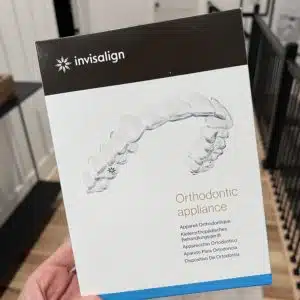People get pay raises all the time, but often don’t spend much time trying to figure out what the best use of the extra income will be.
But when you get a particularly generous pay raise, it can present an opportunity to make some major long-term improvements in your life.
And that’s what we’re going to talk about in this article.
Here’s my question: If I get a significant raise at work (~$600 after taxes), what’s the best way to budget that money? Towards debt, towards retirement, or towards an emergency fund?
Not sure how much back story you want, but we currently live off last month’s income so sort of an emergency fund in a way. And we budget down to the last penny every month. We currently have money going to all three areas. If I were to put the $600 all towards our smallest loan, it’d be paid off in 3-4 months.
Then we’d have $1000 ($400 is currently going toward that loan) for other debt or the other two categories. We’re doing the snowball debt method now, so that’s working well, but not sure when to focus on the other areas too.
I am only ~$200/month away from maxing out my Roth IRA, so that’s an option. My husband gets a pension through his work, but he could choose to max out an IRA too.
HELP!
Sincerely,
Overwhelmed by too many choices
Melissa
Table of Contents
We really have to give Melissa a lot of credit for asking this question. Most people respond to a large pay increase with lifestyle inflation. That’s where your lifestyle expands to fill out any and all available income. And it’s a bad move! Melissa correctly assumes that there’s a better course of action.
Here’s the priority that I would recommend:
The Case for an Emergency Fund
Melissa makes the point that she and her husband’s practice of living off of last month’s income represents “sort of” an emergency fund. I get where she’s coming from, but it’s really not a true emergency fund.
For one thing, last month’s income is not money in the bank. It’s more like funds in transition, more closely related to a checking account. The money goes in, and the money comes out. That’s really not an emergency fund.
The most basic purpose of an emergency fund is to provide a temporary income cushion in the event that your paycheck disappears. The spending last month’s income method may cover up to 30 days of lost income, but what happens after that? And what happens if that paycheck is delayed or otherwise disrupted as a result of the termination?
An emergency fund should never be a system. It should specifically be the dullest and most boring corner of your financial universe. That means a savings account, money market fund, or certificates of deposit, that can be readily accessed in the event of an emergency.
Last month’s income will only be enough to pay this month’s expenses. A true emergency fund should have enough money to cover your living expenses for at least three months. You may also want to have a sufficient amount of money in the account to cover insurance deductibles on health and auto insurance policies.
So my first priority would be to direct the extra income from the pay raise into building an actual emergency fund, based on the parameters that I just listed.
Pay Off Debt
This should be the second priority, once an emergency fund is established and fully funded. Melissa doesn’t indicate how much debt she and her husband have, but she does acknowledge the existence of several debts.
Since it is clear that the couple can live within their means (evidenced by the fact that they live on last month’s income), the extra cash flow from the pay raise can easily be dedicated to the payoff of that debt. As Melissa points out with the payoff of the smallest debt, an extra $400 per month would be added to their budget as a result.
That will give them $1,000 per month to earmark for their debts. That will hopefully enable them to get out of debt pretty quickly. We can also assume that as each loan is paid, the couple’s cash flow will improve even more. And once all of the debt is paid, opportunities to save and invest can really take off. That’s why I would favor paying off debt ahead of funding their IRAs.
Now, About Those IRAs…
With all of that cash flow freed up from paying off their debt, and with a fully stocked emergency fund, Melissa and her husband should be able to fund an IRA for each of them without any difficulty.
She disclosed that in paying off their smallest loan, they will have an extra $1,000 per month, including the new income from her pay raise. That will give them an extra $12,000 per year. Since the maximum contribution to a traditional or Roth IRA is $6,000 per year (or $7,000 per year if you’re over 50 years old), they’d be able to fund an IRA for each of them for $12,000.
This is why it’s so important to pay off debt. It frees up your cash flow to dedicate to increasing savings and investments.
NOTE:
While We’re at It, Let’s Talk About What Might Come Next
Once all of their debts are paid off, we know that they’re going to have something much greater than $1,000 per month in free cash flow. We know this because Melissa indicated that by paying off their smallest loan, their cash flow will increase by $400 per month. We don’t know, but maybe there will be an extra $2,000 per month – or more – after all the debt has been paid.
I’ve already described how easy it will be for Melissa and her husband to each max out their IRA contributions. But if they will have much additional cash flow after paying off their debt, they can look beyond the three choices she laid out, paying off debt, funding their IRA accounts, and building a more traditional emergency fund.
The choices here are wide open. They can consider:
- Increasing contributions to employer-sponsored retirement plans; will also provide a generous tax deduction that will free up even more cash flow,
- Fund intermediate-term savings goals, such as the purchase of their next car,
- Invest outside of retirement plans, such as investing in investment brokerage accounts or mutual funds
Melissa and her husband are actually in a good place in life. They not only have extra cash flow, but they have at least loose plans on putting that cash flow to work. You and your husband are on a roll, Melissa! You need to keep it going. Once you’ve accomplished the objectives that you spelled out, make sure you keep going forward.
Who knows, you might be laying the foundation for early retirement, without even realizing it.
The Recommendation Will Be Different for Others in the Same Situation
In closing, I want to make clear that the advice given here is specific to Melissa, the scenario she has spelled out, and the questions that she’s asked. The advice might be somewhat different, or even totally different, for a similar – but not exact – situation.
If you enjoyed reading this response, and have a question of your own, feel free to ask away! If I think the answer would benefit other readers, you’ll see it published on this website.
And never be embarrassed to ask a financial question. It means that you are thinking and that you’re trying to move ahead. I’d like to help you do that!








Good question Melissa! I have slightly different advice on emergency funds, in fact I write some fairly detailed posts about it this week and last week. Fact is blanket advice of 3 months may not be suitable and done folks can get by with alternative emergency funds, not the traditional advice.
I’d get rid of high interest debt first and then use it to pad retirement accounts. That’s just me, but personal finance is personal so I’d recommend getting various opinions and finding what suits you best.
A lot of people would recommend taking the extra money and having it go somewhere via an automatic payment so that you never even see it in your bank account. Having it directed automatically toward a retirement, investment, or saving account, or having it apply toward an extra debt payment will go a long way toward increasing your net worth.
I think that is a super effective strategy. Save before you see you paycheck and spend what’s left.
“Sure enough, because I took the time to ask and to also give some supporting data to support that, I was actually given a raise of over $20,000”
That’s certainly an inspiring tip. Can you elaborate on what you mean by “some supporting data?” I suspect presenting this data was a critical reason you were offered this kind of increase. I’ve been in my current position for less than a year, so I’m starting to think about a good time to ask. I think I should probably log a full two years before asking for an increase.